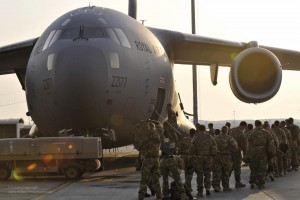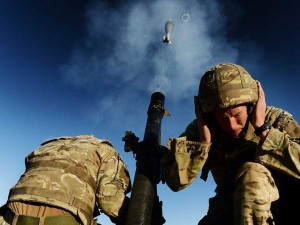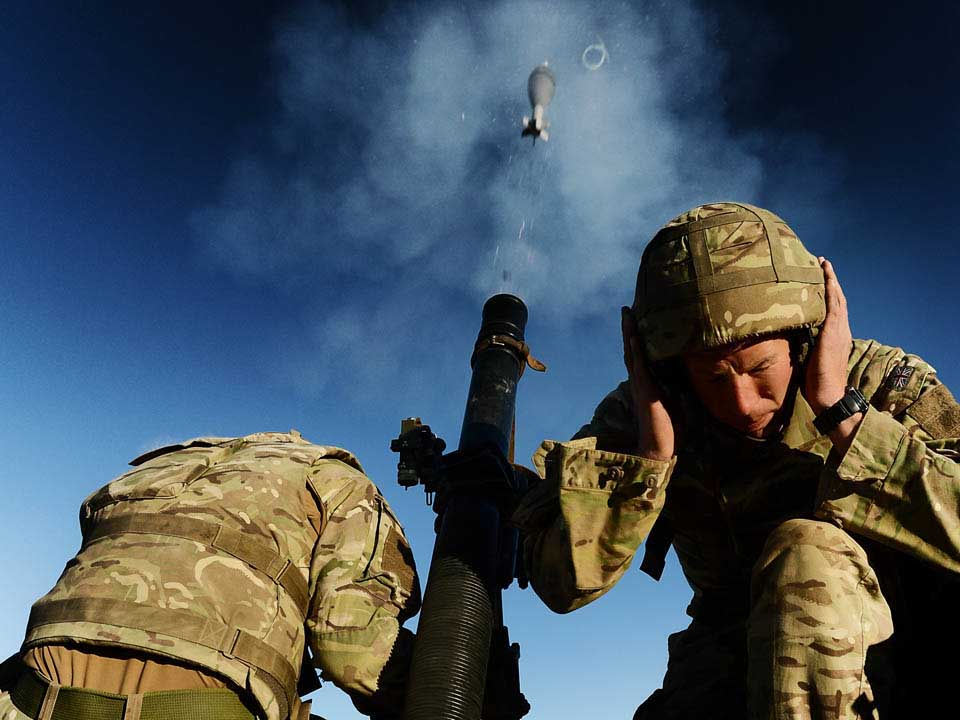In the last decades, the reliance on private military companies (PMCs) to accomplish military tasks previously undertaken by regular soldiers has never been so large. Both the conflicts in Afghanistan and Iraq gave a new dimension to the use of “soldiers for hire.” With the pending withdrawal of most foreign troops from Afghanistan, by the end of 2014, western countries will be relying more than ever on PMCs to do the job that was previously executed by the regular military.
The use of PMCs started during the 20th century when some countries, corporations, and groups started to make use of soldiers for hire in a more professional way instead of regular national armies. They employed companies (the PMCs) that would supply “contractors” (civilians) to do the job of soldiers, mostly in so-called proxy wars or dirty wars, usually in Africa or Asia. This professionalisation of fighting was responsible for the emergence of PMCs. The justification of the use of PMCs came mostly from the reduction  in cost, as the price of PMCs is far below the amount necessary to keep standing armies for long periods of time, especially when great battles between states were and still are becoming less and less frequent.
in cost, as the price of PMCs is far below the amount necessary to keep standing armies for long periods of time, especially when great battles between states were and still are becoming less and less frequent.
However, during the past century, the knowledge of the existence of PMCs was reserved for insiders or scholars of the subject. Nevertheless, this auxiliary role performed by PMCs changed with the American War on Terror. This gave a completely new dimension to the use of PMCs in the battlefield as in order to be able to fight in two different wars (Afghanistan and Iraq) at the same time, the United States had to start making extensive use of PMCs.
Nevertheless, there are a number of issues that can arise with the use of PMCs. One of these issues was highlighted by an incident in 2007 in Iraq. In this case, Blackwater (now called Academi) contractors killed 17 innocent civilians at Nisour Square in Baghdad. The whole legal process involved in punishing those responsible for the incident was hampered by the fact that PMCs lie in a gray area of the international judicial system.
This legal problem comes first because of the diverse origin of these military contractors. Most of them are former American military serviceman, but some are also former Special Forces from countries like Russia, Poland, or The United Kingdom. Others are veterans from the Balkan Wars, South African officers from the time of the Apartheid, and ex-French Foreign Legionaries. Secondly, since PMCs also are base in locations from all corners of the globe,
some situations in the battlefield can end up outside of international jurisdiction. Imagine a French veteran hired by Academi, an American company, working in Iraq, who kills an innocent civilian. Should he be put on trial in France, the US, or Iraq? So far, the lack of international governance in these situations leaves the use of PMCs in a legal limbo.
There are also moral issues in employing these kinds of companies. On several occasions, they were accused of crossing moral boundaries in the name of profit. One of the first PMCs in the world, Executive Outcomes from South Africa, was accused of engaging in mercenary activities during its actions in the Angolan Civil War in the 90s. These actions would be illegal under the Geneva Convention article 47. Moreover, there was Sandline International, which was accused of atrocities against local native populations in Papua New Guinea when acting for the advancement of big international mining companies’ agendas. Finally, several PMCs have also been accused of orchestrating coups d’états in African countries.
However, these legal and moral issues have not been preventing a growing use of PMCs by countries, corporations, international organizations, and even individuals. Cost benefit and professionalism are the main attractions in the use of contractors. Some argue that PMCs should even be employed in UN missions around the globe, as the UN itself has been criticized several times for employing poorly trained troops from underdeveloped countries.
One example of the massive use of PMCs despite these legal and moral  issues can be seen in Afghanistan. PMCs have been present on the ground in Afghanistan since the beginning of the American invasion in 2001. They were there mostly helping in the training of the ANA (Afghanistan National Army) and securing international embassies and authorities. These kinds of activities expose contractors to almost the same kind of risks as regular soldiers. The risks involved can be seen in the number of contractors killed in 2011 in Afghanistan, which reached at least 430 contractors from American PMCs. This number was even higher than the number of American soldiers killed for that same year, 418. With the increasing use of contractors working for PMCs in Afghanistan, this disparity only continue to increase.
issues can be seen in Afghanistan. PMCs have been present on the ground in Afghanistan since the beginning of the American invasion in 2001. They were there mostly helping in the training of the ANA (Afghanistan National Army) and securing international embassies and authorities. These kinds of activities expose contractors to almost the same kind of risks as regular soldiers. The risks involved can be seen in the number of contractors killed in 2011 in Afghanistan, which reached at least 430 contractors from American PMCs. This number was even higher than the number of American soldiers killed for that same year, 418. With the increasing use of contractors working for PMCs in Afghanistan, this disparity only continue to increase.
In the second part of this article that will be featured in our next month’s issue, we will interview Tim Foxley, an Afghanistan intelligence specialist, about what he believes the future will be of this central Asian country as well as the role that PMCs will play in their future.
By Rodrigo de Souza
Image credit:
Picture 1: Defence Images, licensed under CC BY 2.0
Picture 2: Royal Navy Media Archive, licensed under CC BY-NC 2.0










